By Vanessa Tiberio
Neill Kernohan sits behind a plastic collapsible table in the fifth row of Theatre Aurora. Surrounded by 150 maroon-coloured seats, the theatre’s president speaks lighting cues into his microphone headset to the control booth crew.
Once lighting design is taken care of, Kernohan will turn his focus toward stage managing and set building – roles typically reserved for crew members. But with just one week left until opening night for The Diary of Anne Frank, the story of a Jewish girl in hiding during World War II, those roles have remained vacant.
Feeling the crunch, Kernohan has been asking his family and even anyone he sees hanging around the theatre to offer a helping hand.
“We’re all kind of complaining a little bit lately because the work is so heavy,” Kernohan said.
“But we are all really enjoying ourselves,” he stressed.
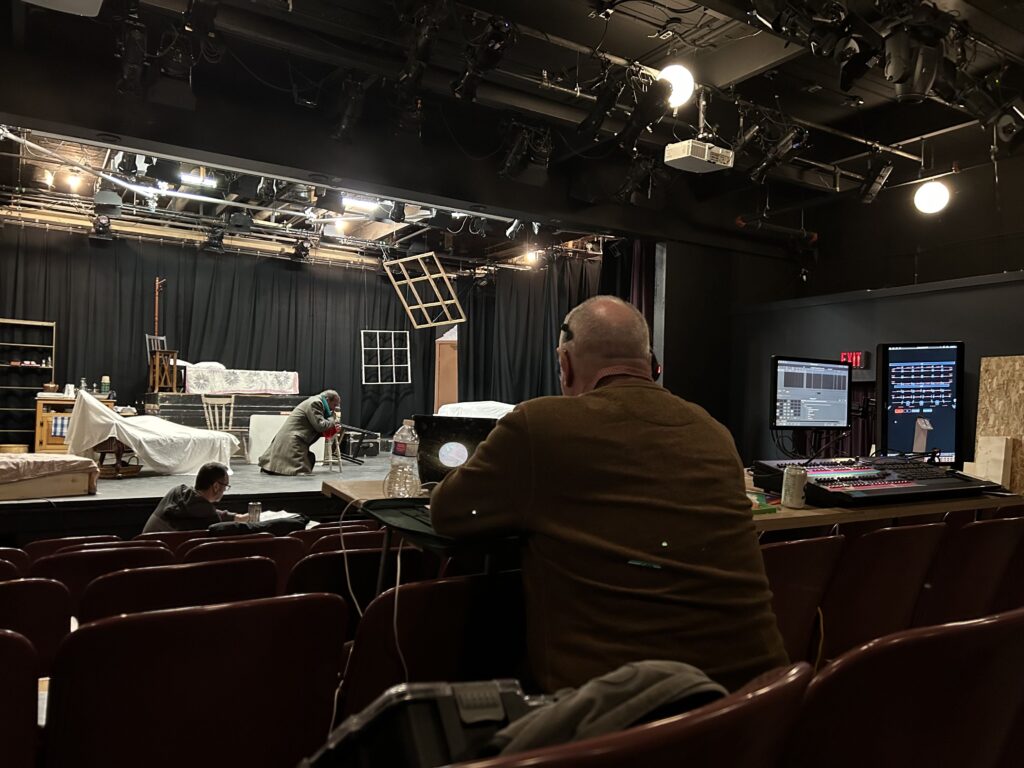
The non-profit theatre, a 40-minute drive north of downtown Toronto on the southwest side of Aurora, has been entirely volunteer-run since its inception in 1958. But it faces a grim future now, following the pandemic closures and aging volunteers that have made the retention of cast and crew members challenging.
The theatre began when a group called the Aurora Drama Workshop formed to produce Tovarich, the story of a fleeing Russian royal couple that became servants in Paris. Actors rehearsed in shed-like buildings and basement recreation rooms until 1971 when the town purchased and rented out a concrete step factory to the group. In their new home called the Factory Theatre, the workshop group merged with the Aurora Musical Theatre Society and put on their first performance in 1974.
Since the beginning, every person involved in the theatre has participated on an unpaid basis. From the board members, production designers and technical crew to the actors, the countless hours involved in creating a production are not financially compensated.
As a community theatre run by volunteers, Theatre Aurora doesn’t qualify for grants from the Ontario Arts Council, a provincial arms-length agency which funds theatres that pay their actors.
Theatre Aurora’s main source of income comes from ticket sales, which range from $10 to $25. Its other income streams include donations, renting out the theatre to other organizations and hosting Bingo charity nights. For most productions, the theatre breaks even, said Judi Cragg, Theatre Aurora’s vice president of productions.
The main driving force for volunteers is their unconditional love for theatre, as taking the stage is “a feeling like no other,” she said. However, Cragg said this passion hasn’t been enough after the COVID-19 pandemic lockdowns.
“We’re having a lot of difficulty getting volunteers to come back, and we’re not the only community theatre having that problem,” she said.
According to the National Arts and Culture Impact Survey in November 2020, over 70 per cent of Ontario artists or art workers reported working less in the arts and culture sector than before the pandemic, mainly due to stress and burnout associated with having to adapt programming to shutdowns.
But the end of lockdowns hasn’t persuaded volunteers to return in full force, according to Kernohan. People have become used to staying home and gotten more comfortable watching streaming services, he surmised.
As for volunteers who continuously return, Cragg noted they are now older and not as capable of doing the same tasks they used to do. The theatre is trying to attract more youth to maintain its programming, “but they need to come in and learn,” said Cragg.
“They have to put in the time, and I think a lot of people now don’t want to do something and not get paid,” she said.
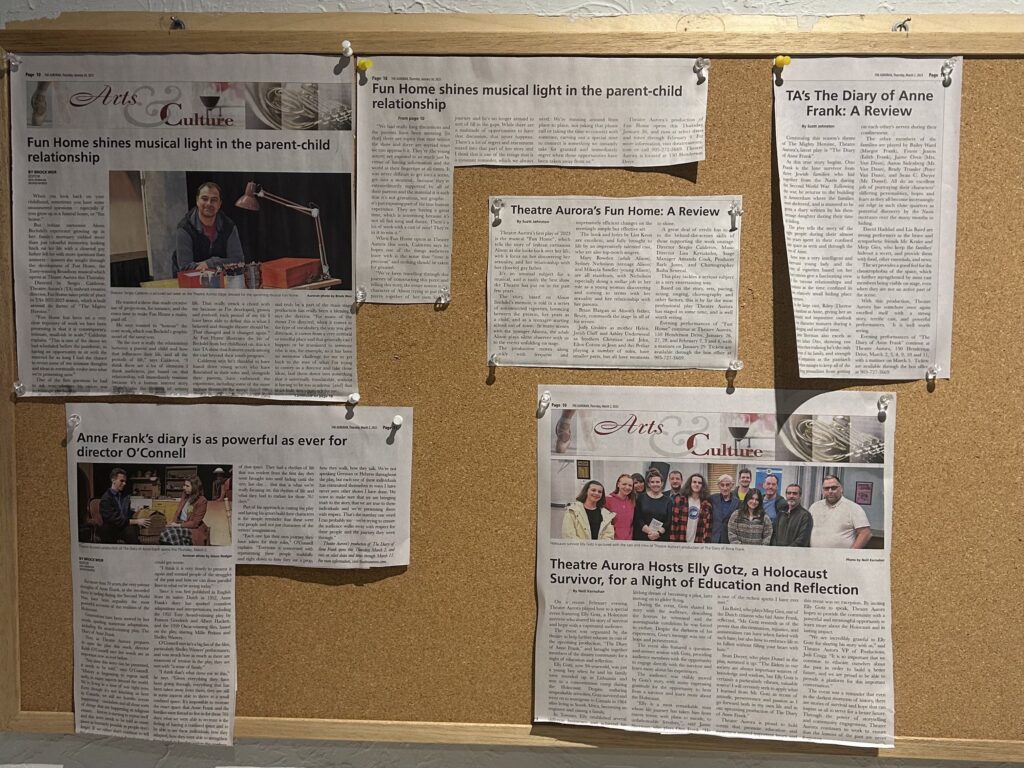
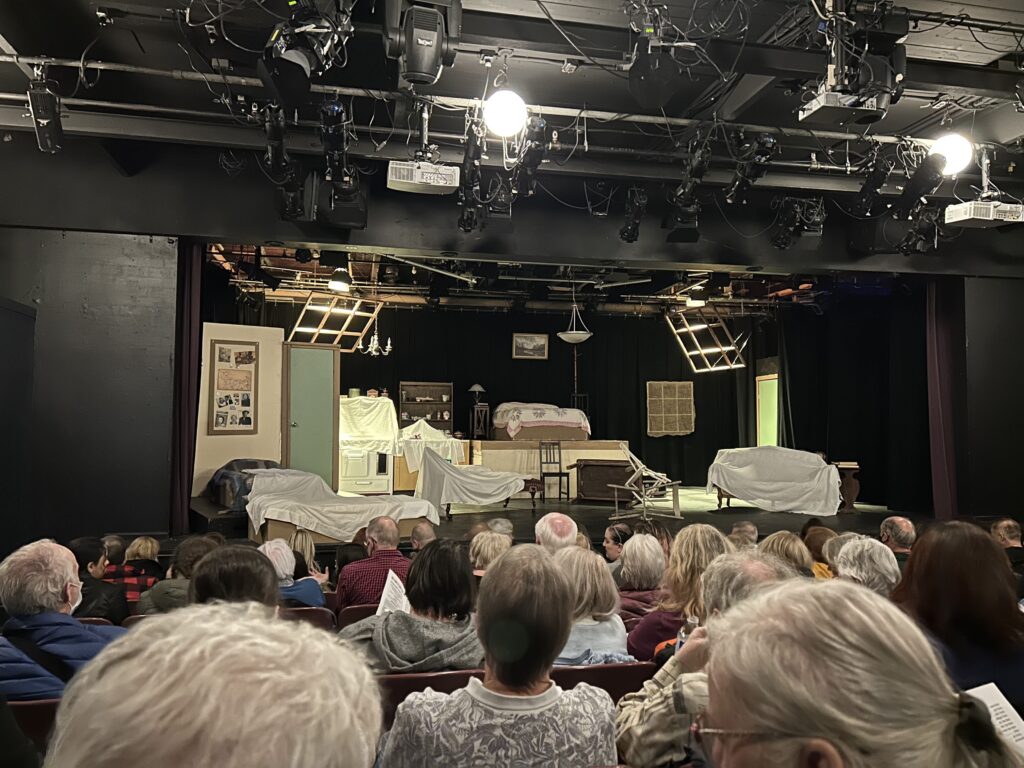
Theatre Aurora used to run a youth program to teach the fundamentals of live theatre to young people aged 10 to 18. But the program had to be scrapped when gaining youth interest after the return to in-person activities proved difficult.
“Coming offline was very hard; we weren’t ready,” said Kernohan. “We tried, and when we did start advertising, we couldn’t get youth. I think we waited maybe a little too long.”
Many of the volunteer actors for The Diary of Anne Frank, like David Haddad, began their theatre involvement when they took drama classes in high school.
Haddad said he doesn’t see community theatre lasting the next 50 years because young people only want to be on stage instead of helping with behind-the-scenes crew roles.
“We have to show [young people] what it really takes to put on a show,” said Haddad, “Acting is 10 per cent of the play; 90 per cent of it is hard work.”
For those currently keeping the storytelling alive at Theatre Aurora, the theatre offers the opportunity to explore new stories, rekindle old memories and connect with like-minded people.
For Haddad, who played the man helping the Frank family hide from the Nazis, the storytelling aspect of community theatre is what appeals to him.
“It’s becoming part of a family and just discovering new stories and scripts because I’ve seen and read so many plays that I never knew,” Haddad said. “It’s always amazing to hear the messages that these plays bring.”
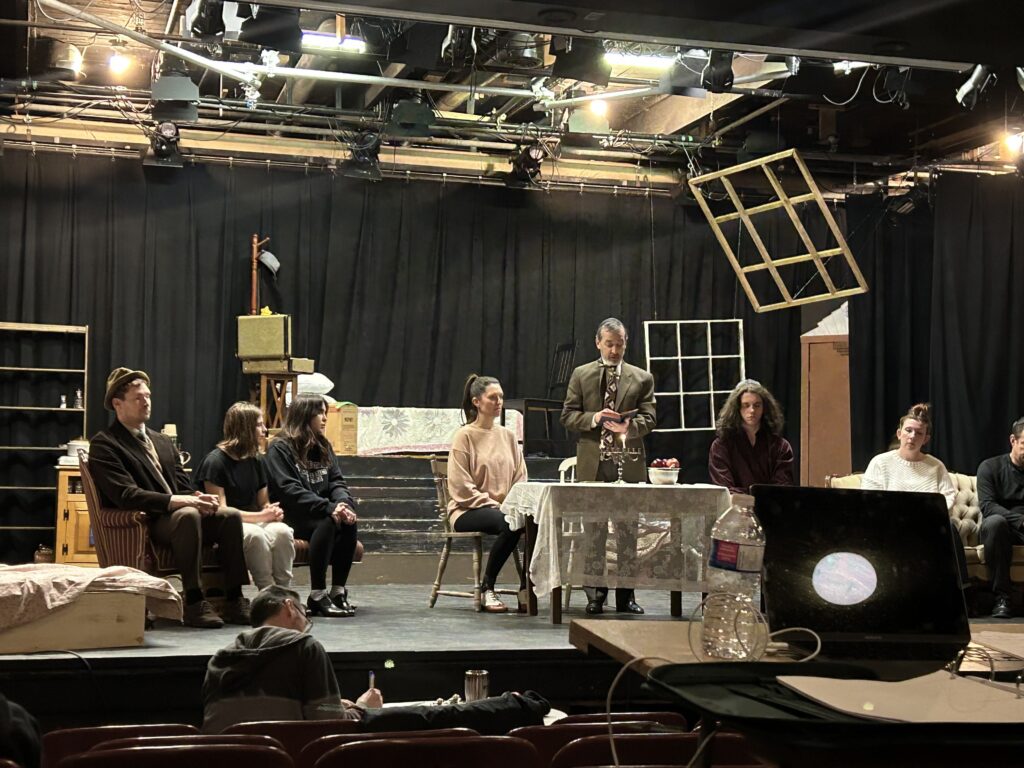
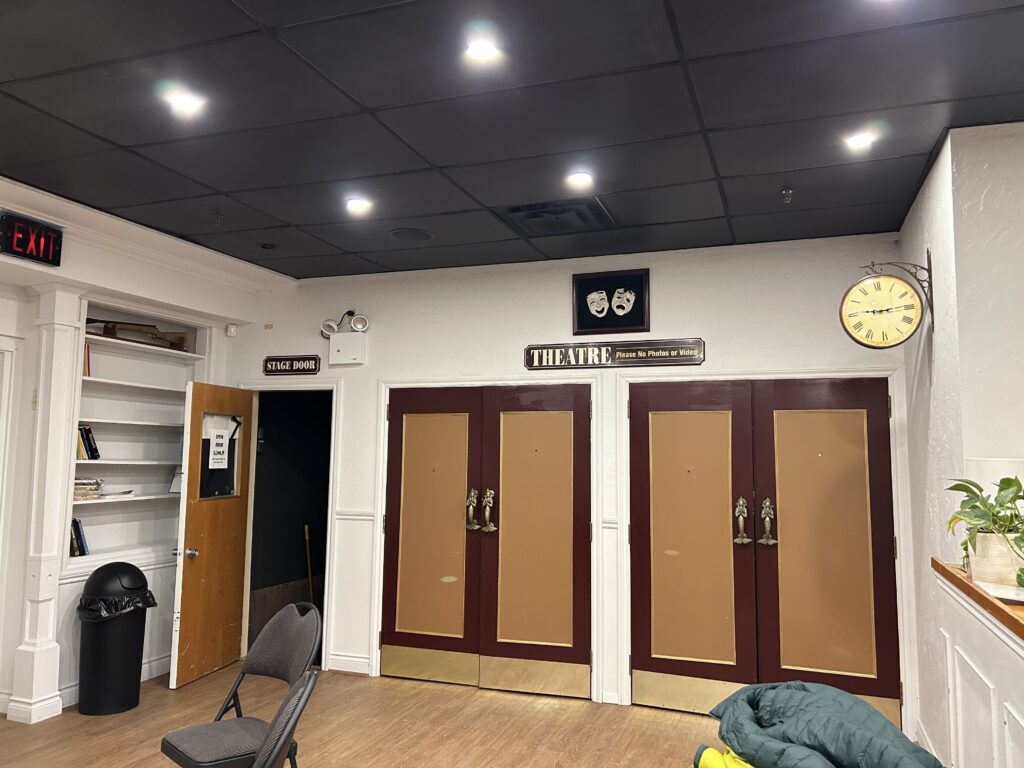
For others, community theatre is more personal.
When Aaron Sidenberg heard about Theatre Aurora’s upcoming production of The Diary of Anne Frank, he knew he had to audition. His grandfather was a Holocaust survivor who went into hiding in 1942 after returning home one day to find his wife and children had been taken to concentration camps. Like Anne Frank, Sidenberg’s grandfather was aided by non-Jewish people who hid him and helped him survive.
“So this story means a lot,” said Sidenberg, who played Mr. Van Daan, also hiding with the Franks. “It’s something that we need to keep educating our future generations of because any Holocaust survivors that are still alive right now are probably in their mid-90s, and in the next few years, there won’t be anyone to truly live to tell the tale.”
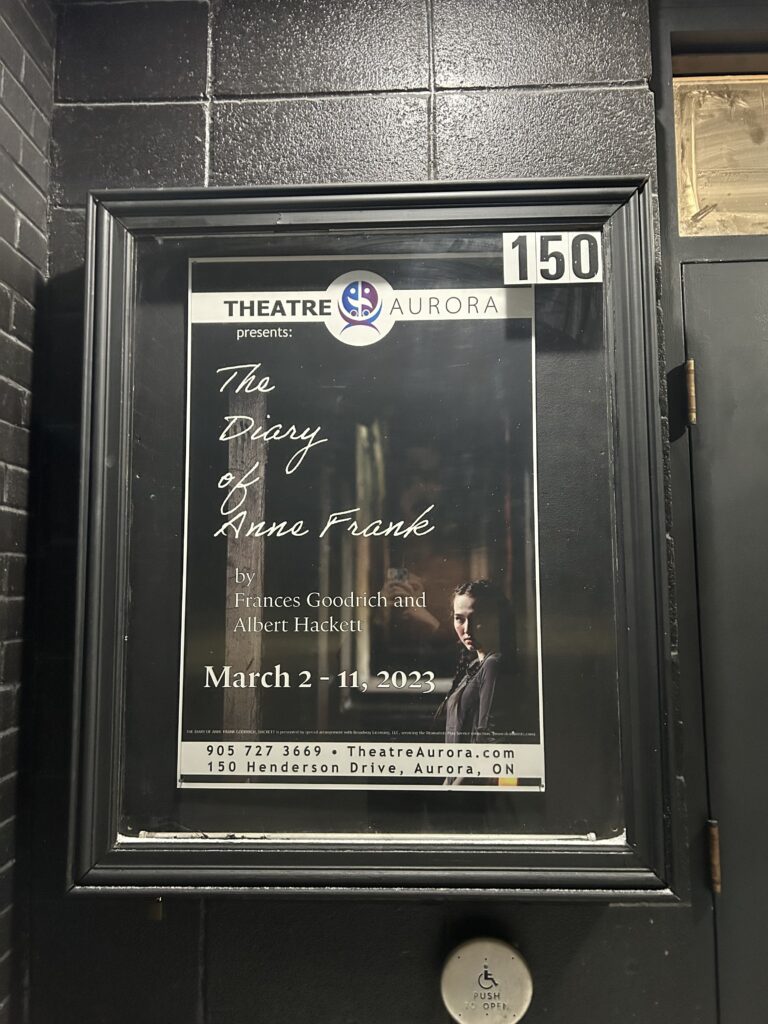
Along with sharing important stories, Theatre Aurora presents an avenue for actors to reconnect with their passions, which is the case for Jamie Sherman, who returned to acting 30 years after graduating high school. As an actor at Theatre Aurora for seven years, spending time with like-minded, dedicated volunteers keeps him returning.
“There are very talented people who are in community theatre, and if you want it to sustain itself, you need to come up and volunteer,” said Sherman.
For next season, Theatre Aurora plans to put on fewer and more familiar shows, hoping the strategy will encourage people to get involved without spreading themselves too thin. They also plan to cater their marketing to younger demographics to revitalize the community theatre scene for everyone.
“We’re doing it personally for ourselves because we enjoy it – but mostly, it’s for the community, for entertainment,” said Cragg.
